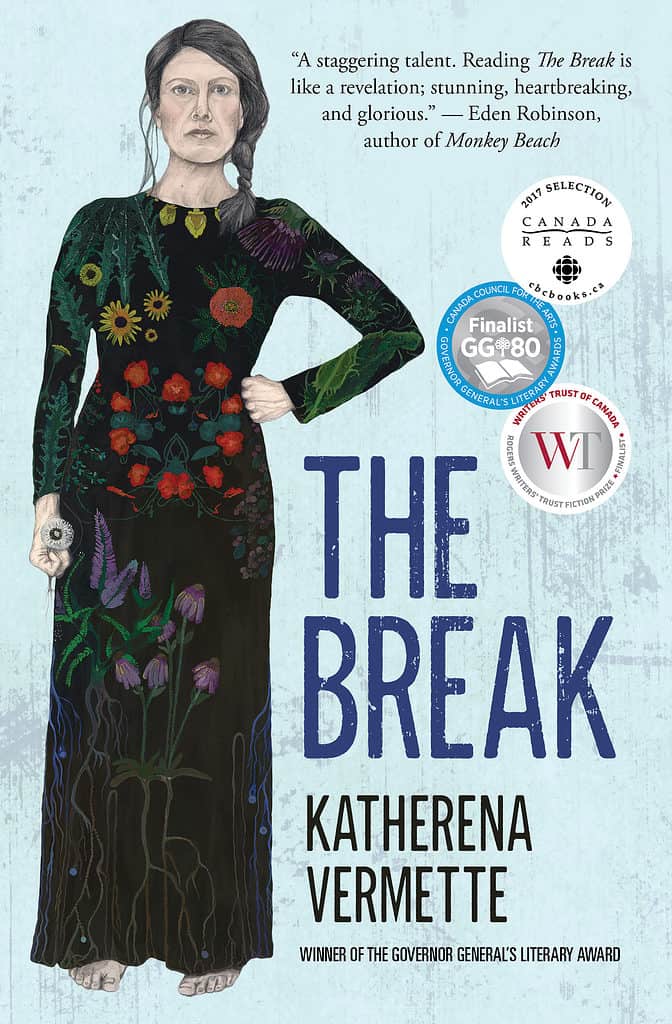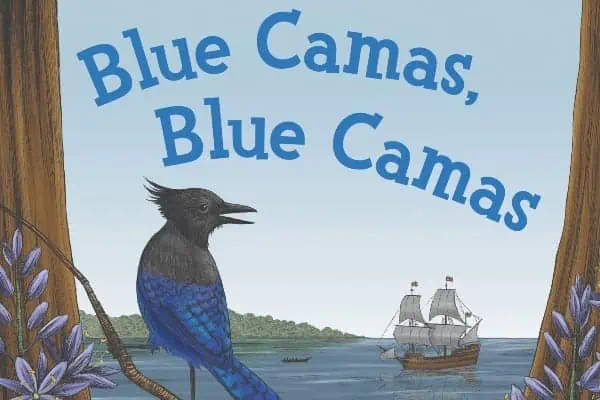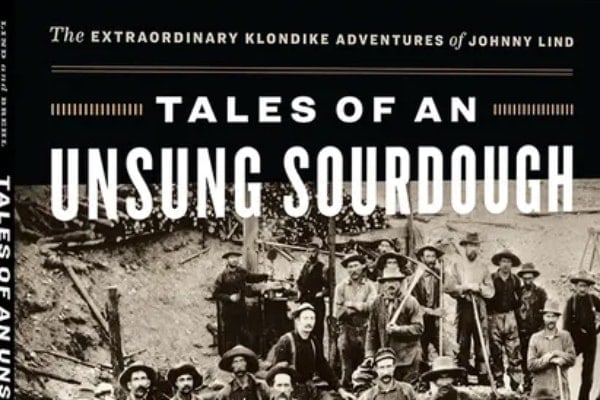“She thinks of each time, every instance. One by one. It’s really the past. Not even hers. Just stories that really belong to other people, but were somehow passed to her for safekeeping, for her to know, forever.” –excerpt from The Break by Katherena Vermette
A vicious attack leaves two girls hospitalized. Their families, reeling, draw together, looking for answers. In her arresting debut novel, The Break, author Katherena Vermette, a Metis writer from Treaty One territory, weaves together the stories of people affected by the crime.

Written from alternating characters’ perspectives — mother and daughter, victim and perpetrator, witness and police officer — Vermette crafts a vivid account of intergenerational trauma, healing and resilience.
Stella, a young Metis mother, lives next to a vacant swath of Hydro land in Winnipeg’s North End. “The Break” she calls it, and it’s there, from her window, that Stella witnesses a bloody attack.
Oblivious to the fact that it’s her cousin, Stella calls the police. One of the officers racially typecasts the ensuing investigation as “…just nates beating on nates. Same old.”
But no incident is isolated from a source.
The family at the centre of the attack, chronicled through four generations of indigenous women, has already survived a morbid medley of racism, sexual assault and murder. And as the narration shifts through their perspectives, the truth about the crime expands to show the history and lives of the people involved.
The stories that emerge are heavy with feelings of guilt, shame and pain. And “the Break,” the barren plot of land where the story begins, becomes a physical reminder and metaphor of the divisive traumas that haunt us.
Thematically driven by the astounding multifaceted power of its female characters — to heal, to hurt, to reconcile with misfortune and, yes, to also be the cause of pain and suffering, The Break is bare and raw and, at times, hard to read.
While fictional, Vermette’s novel is a very realistic story for some indigenous peoples in Canada. The historic (and continued) racially-driven intrusions on their rights interrupted a way of life, causing complicated and sometimes devastating situations that continue to extend past the generations immediately affected. And while this is a transparent motif in the novel, Vermette isn’t pointing fingers. The Break is not about blame as much as it is about tracing the painful fractures in a people’s culture and how they can be transferred throughout the family tree.
A secondary strength of the novel is Vermette’s writing style: she does not suppose or demand any comfortable empathy with the story. Empathic storytelling can be misleading by creating the idea that we identify with another’s reality, whereas sometimes there’s more value in understanding our inability to truly comprehend another’s situation. Without asking for empathic permission, Vermette maintains a sharply autonomous and authentic voice, stripping the story of any potential romance that would soften its depth or sincerity.
Lauded by many national literary institutions and shortlisted for the Governor General’s Literary Award and the Rogers Writers’ Trust Fiction Prize, you may have heard about The Break as a finalist in CBC’s Canada Reads 2017. If you were on the fence then, let me sway you now: true to the competition’s sentiment I believe it is a book Canadians “must read.”
The Break by Katherena Vermette is available at the public library.




